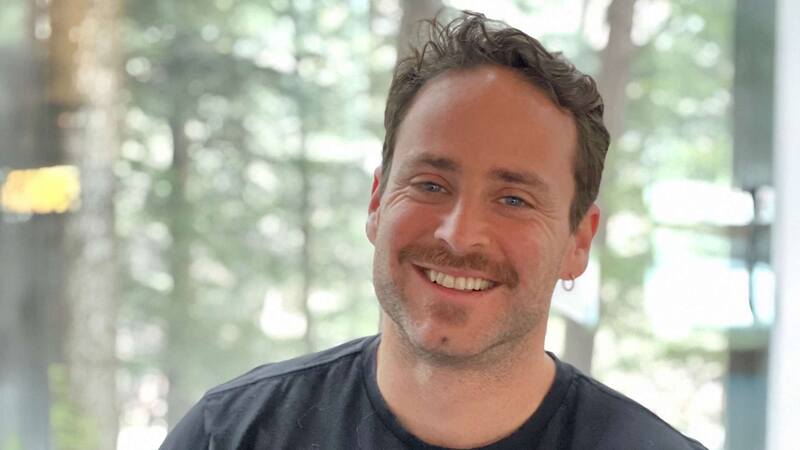At first glance, John Lanchester’s latest book—his first novel since 2002’s Fragrant Harbour—lands squarely in that growing subgenre of “recession lit”. Indeed, Capital is being marketed as a “post-crash, state-of-the nation novel”, perhaps aiming to tap into the market that has spawned Anne Enright’s The Forgotten Waltz, Adam Haslett’s Union Atlantic and the most successful of all the credit crunch novels, Sebastian Faulks’ A Week in December.
A slight problem with pigeonholing Capital as “recession lit” is that Lanchester started writing it in 2005. He says: “The chronology is that it became a ‘crash’ novel after the crash happened. I originally started writing about the characters, writing about London. I wanted to write a big, fat London novel. The city has these amazing currents running through it; it is a microcosm of the world, and I wanted to try to capture that.”
Lanchester was born in Hamburg, grew up in Hong Kong, educated at an English boarding school, and has lived in London for 25 years. So he says he has both an outsider’s and insider’s view of the city. “I sort of hesitate to say this, but I do think of myself as a Londoner now. Like so many people here, I’m not from here. My impression of London when I first saw it in the 1970s was that it was slow, boring and a bit provincial. Particularly when compared to cities like New York, which was incredibly exciting; as if the air was caffeinated and there was an element of danger—trouble could pop up if you took a wrong turn. I think London has that now.”
Huge scope
The readable Capital is indeed a “big, fat” London novel and can be seen as a throwback, with much in common to those ambitious huge-in-scope yet still character-driven 19th-century novels. He creates his London microcosm by centring on the people who live and work on Pepys Road, an “ordinary street” somewhere south of the Thames, the houses of which were originally built for the lower-middle-classes, but have become million-pound-plus homes.
Lanchester purposely keeps the exact area vague in order to make the street more typical and says that he “was pretty confident in naming it that there wouldn’t be a real Pepys Road because the city tends to name streets after obnoxious dead aristocrats, not writers”.
New residents to Pepys Road include City banker Roger, who, financially overextended by his property portfolio and free-spending wife Arabella, is counting on his next bonus to avoid bankruptcy; and Senegalese teenage footballer Freddy and his culture-shocked father Patrick.
Long-term residents include the elderly and ailing Petunia, whose grandson Graham—unbeknownst to her and the public—is the anonymous Banksy-esque art star Smitty; and the hard-working British–Asian Kamal family who run the corner shop. Meanwhile, Polish builder Zbigniew is making money and looking for love, and Zimbabwean political refugee turned traffic warden Quentina gets nearly as much abuse from London drivers as she did from the Mugabe regime.
The action begins when each house on Pepys Road gets a mysterious card through their letterboxes with the words “We Want What You Have”. Originally ignored by most of the residents, the messages increase and become more and more sinister.
Crashing down
And yes, though he did not begin writing Capital as a crash novel, the credit crunch features prominently. This is not surprising, as Lanchester put Capital into the drawer to write Whoops! Why Everyone Owes Everyone and No One Can Pay in 2010, his layman’s guide to the economic meltdown. But Lanchester cautions: “I think the crash is more a factor for the reader: they know the consequences and what’s coming down the pipeline; the characters don’t.”
With his first novel, the 1996 Whitbread First Novel Award winner The Debt to Pleasure, Lanchester deftly made his murderous main character, Tarquin Winot, sympathetic and compelling. He has done that trick again with a character who may be more repulsive to today’s readers than a murderer: the City banker. “As I was writing this, that was a fear: that readers were really going to despise Roger. So I tried to show him more as a product of his circumstances, rather than be a ‘winner takes all’ City guy. He’s weak, but affably weak.”
One subtle commentary on London life is how little the characters know and interact with each other. “My hackles always get raised when politicians talk about communities whenever something like the riots happen. You know, ‘we’re all in this together’ . . . I think that’s a lie. We don’t live in communities; our lives barely interact, barely intersect. There is this sad fragility of modern life, because we live in these self-contained parallel privacies.”














